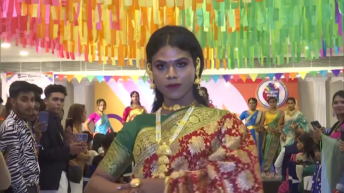Meera Singhania Rehani reflects on her experience of “passing” as a ciswoman after undergoing gender-affirmation surgery, extending the narrative beyond the realm of gender reveal parties. Even three years post-surgery, during the COVID-19 era, she faced challenges, with lingering facial hair inviting speculative glances and mental categorization at metro stations. The dichotomy between burnout and boredom in the realm of gender presentation adds another layer to the narrative.
The World Health Organization (WHO) officially acknowledged burnout in 2019 as chronic workplace stress that remains unmanaged, specifically linked to work-related stressors. However, the widespread use of the term has blurred its original scope. Distinguishing between burnout and boredom becomes crucial, as each requires tailored solutions, and dismissing everything as burnout hinders meaningful improvement.
Career expert Jill Cotton emphasizes the importance of discerning true burnout, characterized by crippling exhaustion and disengagement, from mere boredom. A simple litmus test she suggests is the presence of mental space for other thoughts, indicating potential boredom rather than burnout.

Gender passing, where trans individuals are perceived according to their gender identity rather than their assigned or presumed gender at birth, brings its own set of challenges for Meera Singhania Rehani. She recounts the shift in people’s reactions post-surgery, where validation coexists with voyeuristic attention, posing a complex emotional experience.
Sushant Divgikr, also known as Rani Kohenur, embraces androgyny, delighting in confusing others with varying presentations. The journey from overthinking about being too trans, too femme, or too butch has evolved into a liberating and life-affirming exploration of multiple genders.
In India, where public and psychological spaces are rigidly gendered, perceptions impact opportunities and, in extreme cases, can be a matter of life and death. Transphobic incidents, such as the alleged murder of a trans woman in Tamil Nadu, underscore the stakes involved. Bollywood perpetuates stereotypes, contributing to the challenges faced by trans individuals in India.
Legal defenses like the ‘gay panic defense’ further compound the risks faced by queer individuals. Ruchi Ruuh, a queer-affirmative relationship counselor, notes that not passing can intensify gender dysphoria, leading to anxiety, social withdrawal, and depression.

Activist Zainab Patel challenges the concept of passing, emphasizing the need to present oneself authentically without conforming to preconceived notions. The docu-series “Rainbow Rishta” highlights affirming stories of queer love, where gender becomes a nuanced entity, not overshadowing the pursuit of a fulfilling life.
The reclaiming of life, exemplified by individuals like Daniella and Aishwarya Ayushmaan, reflects a broader resistance against conforming to a heterosexual world order. Sushant Divgikr’s performance philosophy challenges gender norms, emphasizing the freedom to choose diverse expressions.
Zainab Patel, recognizing the perpetual challenge of societal expectations, emphasizes the need for self-acceptance, regardless of societal perceptions. The irrelevance of gender in many individuals’ eyes underscores the futility of conforming to rigid gender binaries.
The article concludes with the notion that gender is strictly personal and that there is no one-size-fits-all approach to navigating gender identity. The diversity of experiences and coping mechanisms highlights the complexity of the journey, echoing the sentiment expressed in Torrey Peters’s novel: “They are trans, but they don’t need to do trans.”





